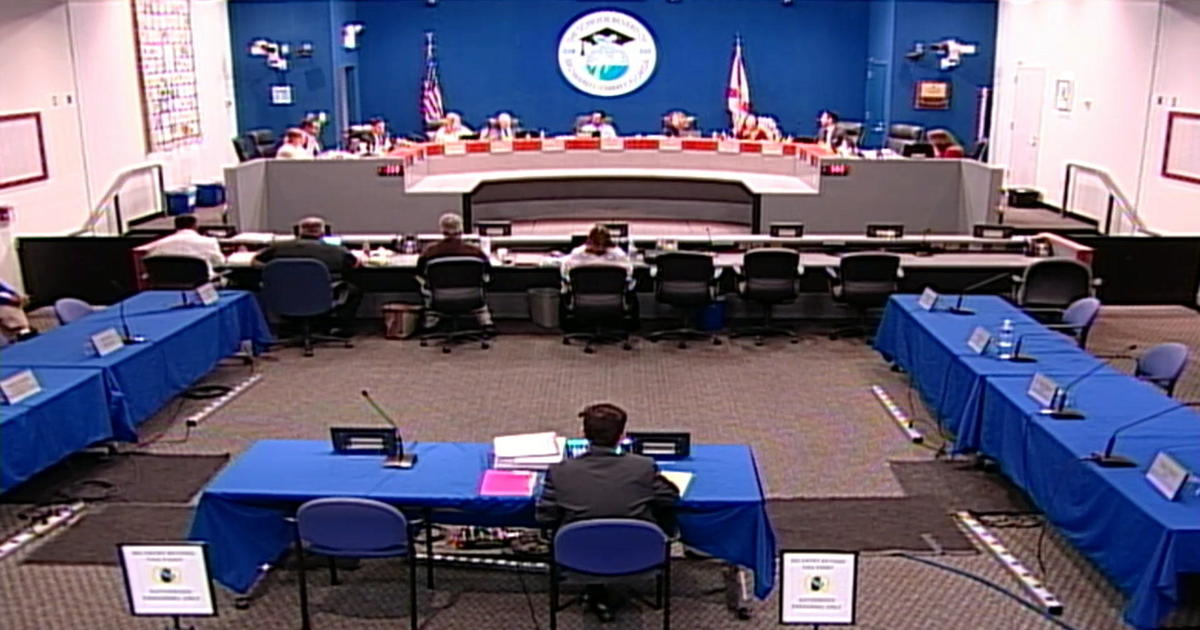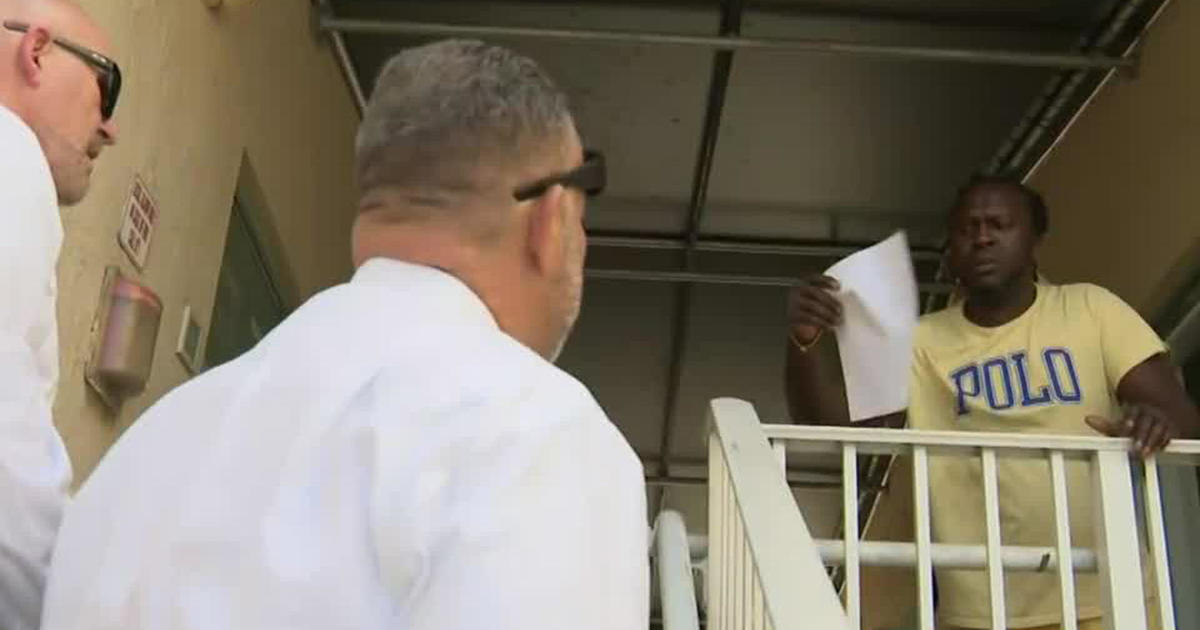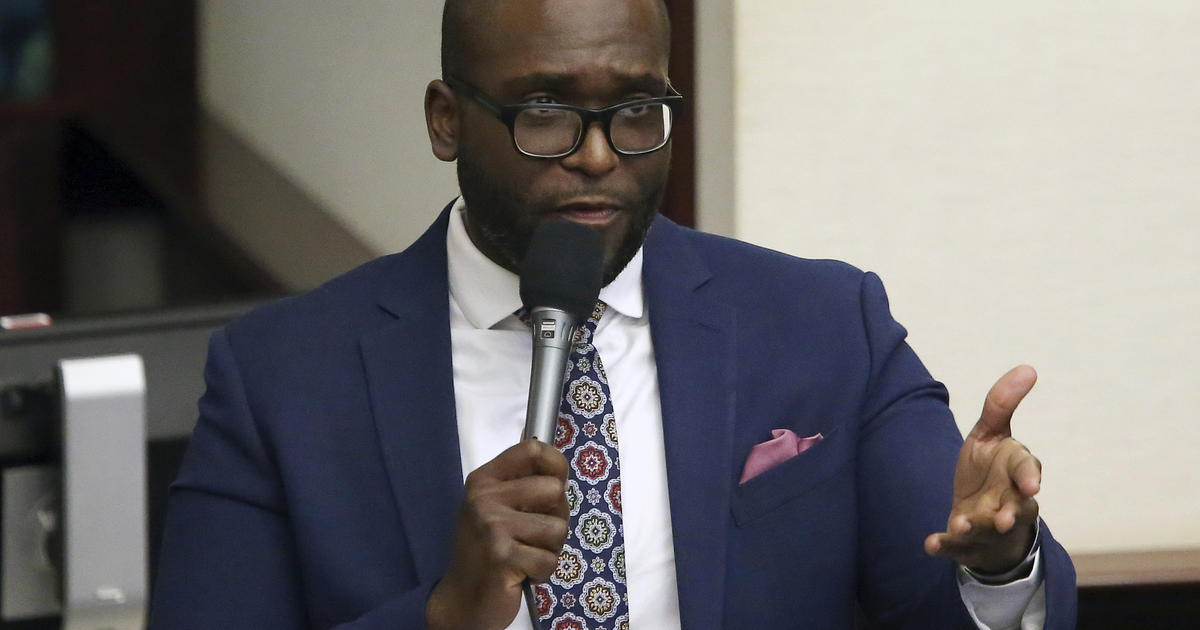Mistrial Denied In Rilya Wilson Murder Trial
MIAMI (CBSMiami) – A Miami-Dade County judge has denied a defense motion in the trial of Geralyn Graham for the murder of Rilya Wilson after confusion over a lapsed legal license was settled.
It was learned late Monday that Assistant State Attorney Joshua Weintraub was taken off the case because he let his Florida Bar license lapse. The discovery of Weintraub's lapsed license came to light after a Miami Herald reader posted a comment about it on the newspaper's website.
But Chief Assistant State Attorney Don Horn told Miami-Dade Circuit Judge Marisa Tinkler-Mendez it was a technical matter that had since been resolved. Horn told the judge that Weintraub had taken the continuing education courses needed to reinstate him earlier in the year and had problems entering the correct course number. He said the error had since been corrected and is now eligible to practice law.
"Mr. Weintraub had apparently completed his required hours and more than the required hours, but apparently because the hours were not properly referenced to the bar he was not credited with those hours," said Judge Tinkler-Mendez in the ruling. "And once the hours were properly documented to the bar he was immediately reinstated and his suspension lifted."
Judge Mendez said a clerical error is not grounds for a mistrial and therefore denied it.
The defense wasn't happy with the legal process surrounding Weintraub's license.
"This is absolutely inappropriate, unethical and wrong," said defense attorney Michael Matters. "There is no justification for someone being allowed to practice law without a license. It's no different when they prosecute people for practicing law without a license in this state."
These sentiments were echoed by his co-counsel Scott Sakin.
"Mr. Weintraub got up here in front of this jury and in front of the judge and said he was an Assistant State Attorney appointed by Katherine Fernandez Rundle to prosecute this case. We certainly believed he was saying that in good faith."
Even though Weintraub has cleared up the technical error, the defense demanded a mistrial. The judge said she would take everything into account and rule on the mistrial motion by the end of the day.
Also Tuesday, retired DCF supervisor Willie Harris wrapped up his testimony. On the stand, he told the jury he removed Rilya from the home of Pam Kendrick after Geralyn Graham called DCF saying Rilya was being kept in filthy conditions.
Graham wanted Rilya moved into her house where Rilya's little sister, Rodericka, was living. Harris said he took Rilya after an irate Kendrick refused to allow him to inspect her house.
"The information that I received indicated that the child was living in deplorable conditions which I could not verify," said Harris on the stand.
Harris admitted no home inspection or evaluation was done when Rilya was given over to Graham who is accused of abusing the girl for months before finally smothering her, and then lying to child welfare workers who failed to discover the girl had been missing for more than a year, according to prosecutors.
University of Miami faculty member Karen Throckmorton testified that she met with Geralyn Graham and Pamela Graham on several occasions and that the she served as a shelter home until DCF could find a permanent home for Rodericka in 1999.
That was before Rodericka was placed with Pamela Graham as her foster parent.
Lily Mae Tuff, a co-worker of Pamela Graham's who was invited to family functions, took the stand after Throckmorton. She testified on several occasions when she asked where Rilya was Geralyn Graham would say the she was "on punishment."
Rilya's case led to new laws and a massive shake-up at Florida's child welfare agency after she vanished in 2000. Authorities long suspected caretaker Graham in Rilya's disappearance, but didn't charge her until 2005 when prosecutors said she confessed to inmate and jailhouse snitch Robin Lunceford while serving time on an unrelated fraud charge.
Lunceford is expected to testify that Graham told her she killed Rilya because the little girl was evil.
Graham is on trial for first-degree murder, kidnapping and child abuse. She faces life in prison if convicted.
During opening statements Monday, Graham's attorney raised the possibility that Rilya could still be alive because her body has not been found. Attorney Scott Sakin suggested Rilya could've been relocated to a new home and lost in a system that has a history of caseworker incompetence. Sakin also reminded jurors that jailhouse snitches have much to gain for helping out prosecutors.
"Is there any evidence at all that this child is dead?" Sakin said. "Where is the body? We don't have to prove that she's alive. They have to prove that this child is dead."
Prosecutors said Graham confessed to killing Rilya, who would be 16 now, because she believed the girl was evil and possessed by demons. Other witnesses will testify that Graham repeatedly lied about the girl's whereabouts after she disappeared, Assistant State Attorney Joshua Weintraub said.
"She snuffed the life out of this child," said Weintraub, holding a large photo of the smiling 4-year-old.
Weintraub told them jury that Rilya was frequently punished harshly, including being kept in a dog cage and tied to a bed with plastic restraints.
"Rilya was always in timeout. Always being punished," Weintraub said.
Graham, 66, uses a walker to move around in court. She has long insisted she is innocent and claimed a Department of Children and Families worker took Rilya from her Miami-area home one day and never returned the girl.
Rilya and a younger sister were both given over to state care because their drug-addicted, frequently homeless mother could not care for them. Rilya's name is an acronym for "remember I love you always" given by her birth mother.
The girl's disappearance led to resignations at DCF, including several high-level positions, when it was discovered that a caseworker was falsifying reports about the girl's well-being and that supervisors took little action. The case also led to a new missing child tracking system in Florida, approval of a privatized system of child casework and tougher laws against falsifying child welfare reports.
Pamela Grahamis also expected to testify in a plea deal with prosecutors that will likely allow her to avoid jail.
The key to the case, both sides agree, is the testimony of career criminal Robin Lunceford, who befriended Graham in jail. Lunceford claims that Graham, referring to Rilya as "it," told her she smothered the girl with a pillow and buried the remains near water "because water represented peace," Weintraub told jurors. Another inmate also claims that Graham confessed at a different time.
Weintraub said Lunceford was reluctant to snitch but "couldn't stomach" knowing about the death of a child.
"If you tell me you killed an innocent child, I'm going to snitch, and I'm going to snitch proud. Because it's different," Weintraub quoted Lunceford as telling detectives.
Lunceford had been facing a life sentence as a repeat offender but has had her sentence reduced to 10 years because of her cooperation, court records show. With time off for good behavior, she could be released by the end of December, Sakin pointed out.
"She's a rat," Sakin said. "Robin Lunceford would do anything, anything, to get out of prison."
Graham also has a checkered past, including a history of convictions for fraud. Authorities said she has used 47 different aliases and had 10 different driver's licenses when she was arrested. Weintraub said Graham forged documents falsely claiming she was Rilya's grandmother in order to collect state benefits — even after police believed the girl was dead.
The grandmother's claim, he said, was "just the first of many, many lies that were woven together in this case to keep the police at bay for many years."
Graham also told friends who questioned the girl's whereabouts that she was on trips to New York, New Jersey and Disney World but would return.
The trial is expected to last about five weeks.
(TM and © Copyright 2012 CBS Radio Inc. and its relevant subsidiaries. CBS RADIO and EYE Logo TM and Copyright 2012 CBS Broadcasting Inc. Used under license. All Rights Reserved. This material may not be published, broadcast, rewritten, or redistributed. The Associated Press contributed to this report.)



